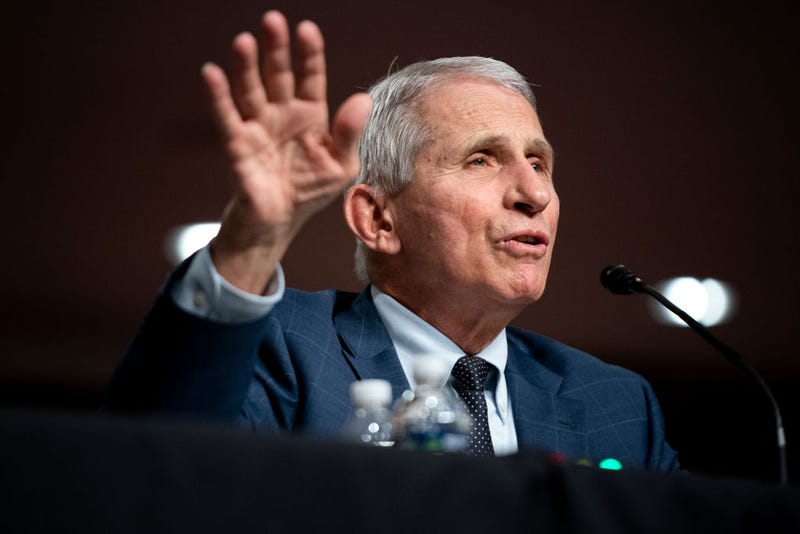
NEW YORK (WCBS 880) — Dr. Anthony Fauci said Friday that the main concern about the BA.2 subvariant is a "transmission advantage," with the latest strain accounting for nearly 30% of new COVID-19 cases in New York City, and 40% in New York and New Jersey.

"It more readily transmits from person to person," Fauci, President Joe Biden's Chief Medical Adviser, told WCBS 880.
Based on the UK's experience with the BA.2 subvariant, the 81-year-old said researchers believe that while COVID-19 infections can spread "more efficiently," this subvariant does not appear to be as severe as prior waves of the pandemic, especially when coupled with vaccinations and boosters.
"We're not dealing with a more severe variant, and number two, the protection that's afforded by vaccination and boosting as well as prior infection is really comparable to the BA.1," Fauci added. "So the only difference is that it spreads a bit more efficiently, which is the reason why in the UK and in certain European countries they're seeing an uptick or a turnaround and the beginning of some mini or moderate surges there."
BA.2 is one of five sub-lineages of the omicron variant. The World Health Organization reports that this latest subvariant has a growth advantage over the BA.1 lineage and that those who've already had omicron are protected from BA.2.
Dr. Ashwin Vasan, the new health commissioner of New York City, said earlier Friday in his first press conference that there is no reason for New Yorkers to be concerned.
"Whatever this virus throws at us, I think we're at a much stronger position than we've ever been in the two years of living with COVID," he said.
While the United States has seen a "steady" decrease in cases, hospitalizations, and deaths in recent months, Fauci warned that the relaxed mask mandates could have an impact on transmission because the BA.2 subvariant is more susceptible to transmission.
Fauci, director of National Institute of Allergy and Infectious Diseases, also reflected on the recent CDC change to mask guidance that incited a majority of states and cities, including New York City, to pull back their mask requirements.
"When the CDC came out with the modification of their metrics, saying that most of the country now is in the situation where you can pull back on masking," he added. "There was a big caveat on that. They said if, however, things turn around and you start to see a disturbing increase in cases, particularly if they result [in an] increase in hospitalization."
While Fauci said he hopes a dangerous uptick does not occur, America needs to be prepared.
"We should be prepared to pivot and maybe go back to the reinstitution of some of these restrictions regarding indoor masking when you have a congregate setting. I hope that doesn't happen. But we need to be prepared for that," he said.
Although Vasan notes that symptoms of this latest subvariant are minor and typically stay out of the lungs, the father of a two-year-old said there are no plans to repeal the mask mandate for children under the age of five or to lift vaccine mandates for employers in New York City.
"I would love nothing more than to send my son to daycare without a mask, but as a scientist and as a doctor and epidemiologist I want to keep him safe," Vasan said.
While Fauci emphasizes the importance of studying the most recent variant, he also advises Americans to "keep an open mind" as vaccine manufacturers such as Pfizer and Moderna submit their data to the FDA for a fourth shot, and a yearly COVID shot may be required.
"It is conceivable that intermittently we may need to get boosted similarly to what we do when we get a yearly shot of the flu," Fauci said. "There’s no guarantee that that will be required. But we least need to keep an open mind that that might be something that will be necessary over the next couple of years."


